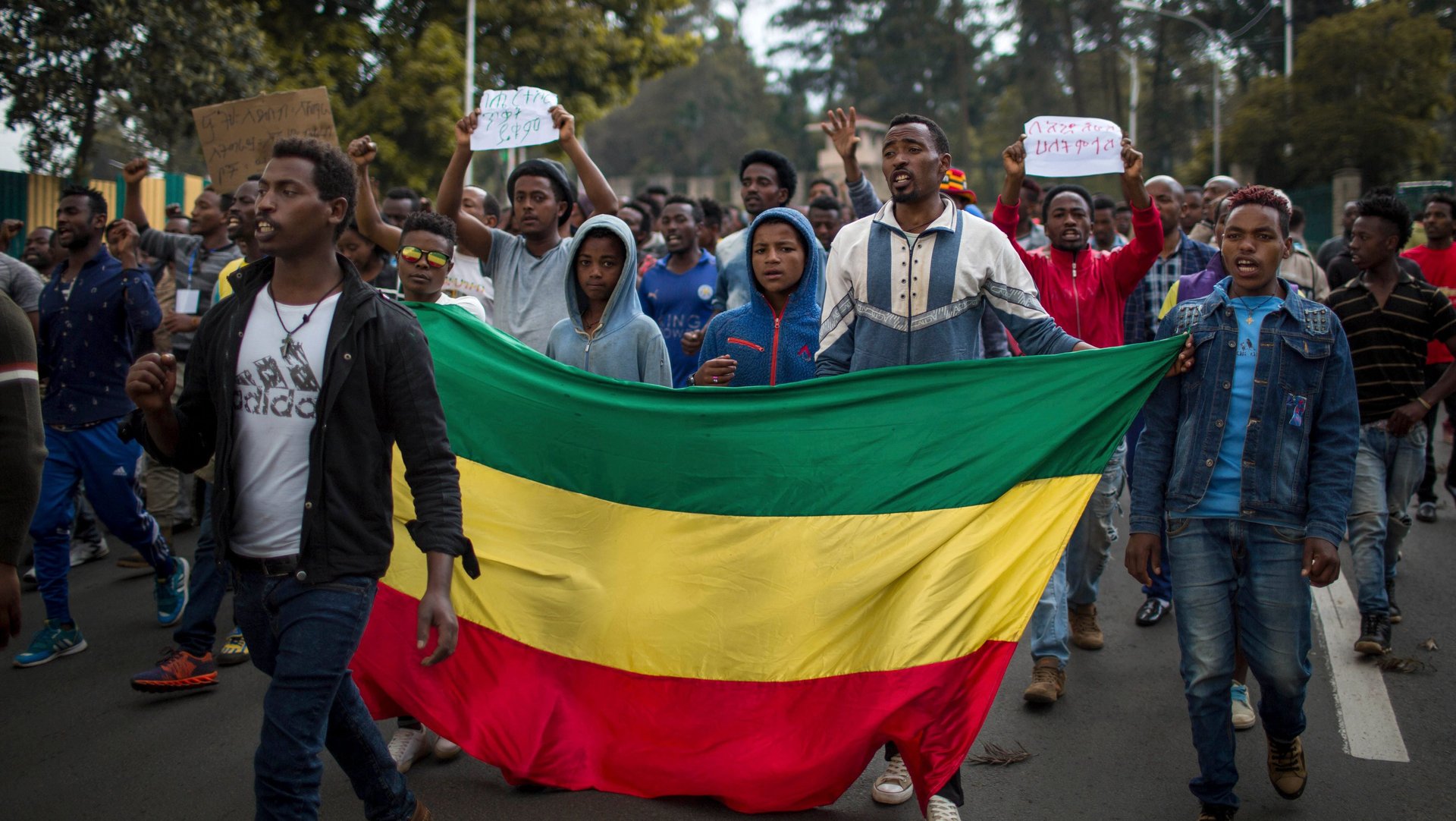Ethiopia’s deadly violence shows the fragility of a nation in democratic transition
Ethiopian prime minister Abiy Ahmed’s reformist agenda is facing a major test.


Ethiopian prime minister Abiy Ahmed’s reformist agenda is facing a major test.
In recent days, Addis Ababa has experienced violent unrest that has led to dozens of killings, mass arrests, and even an internet shutdown. Police said at least 28 people died, seven of them by security forces, during clashes following the return of exiled leaders from opposition group the Oromo Liberation Front.
Scuffles broke out in mid-September after young Oromos started painting the group’s flag colors in the capital, leading to face-offs with other residents who see the flag as a symbol of separatism. The Oromos are the largest ethnic group in Ethiopia and the attacks reportedly targeted ethnic minorities living both in and areas surrounding the capital. The government responded by blocking mobile internet, arresting over 1,200 people, and sending detainees to “rehabilitation.”
The unfolding crisis in the Horn of Africa nation deals a blow to premier Abiy, an Oromo, who has introduced radical changes since coming to office in April. The seismic changes have included freeing journalists, delisting opposition groups as terrorist outfits, mending relations with neighboring nations, and opening up the economy.
The current predicament shows how the uncertainty and fragility surrounding the swift political reforms, and questions if and how the 100-million people nation can sidestep ethnic divisions to attain a united future. There are also the challenges associated with the lack of a planned transitional strategy and the huge unmet hopes and expectations from the population. Then there’s the many opposition and activist voices all now contributing to the conversation about the direction the country should take in the future.
So far, Abiy’s administration has resorted to old tactics when faced with critical challenges. In August, political tension in the eastern Somali region led to clashes with local police and dozens of deaths.
Amnesty International also said social media was awash with hate speech against non-Oromo groups in the days leading to the recent protests, and that security forces did nothing to stop the incitement or protect the targeted communities. The advocacy group also put the number of deaths at 58 instead of the government figure of 28.
“No one should die because of their ethnicity and neither should anyone die because they took a stand against the shocking violence and killings that the authorities failed to prevent,” said Joan Nyanyuki, Amnesty director for East Africa.